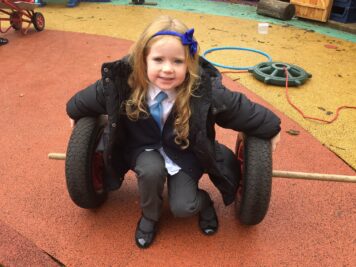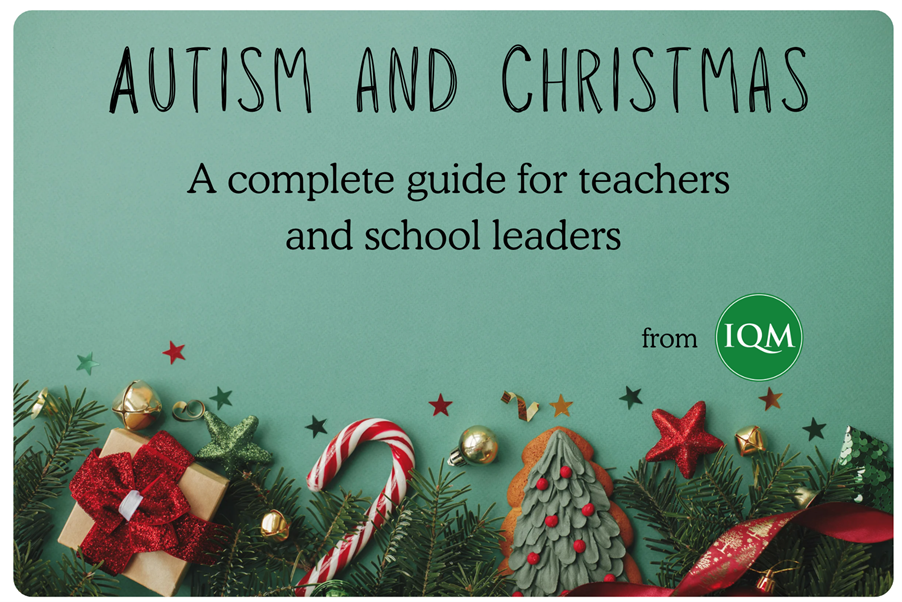Who is IQM?
IQM is the only national inclusion award in the UK. For over 20 years and in over 20 countries, schools, MATs and Local Authorities use the Inclusion Quality Mark to recognise exemplary inclusive practice.
Get in touch for your FREE school information pack today.
Tottington Primary School Achieves Centre of Excellence
January 29, 2024
Tottington Primary School has achieved the Inclusive School Award with Centre of Excellence status.

Strong Team at the Heart
The ambition of the Leadership Team to create, “a fun, exciting and engaging place to learn with a strong team at the heart of it,” is being realised at Tottington Primary School.
“The Tottington Primary School family,” is a phrase used by parents, Governors, children, and staff when talking about their school. This neatly sums up how deeply the culture that recognises and values every individual, as well as the importance of belonging, is embedded. As in many good families, inclusion for everyone is seen as the norm and is lived as part of every day.

The warm welcome visitors receive from the office staff, whilst they follow their robust safeguarding procedures, is a good indication of what happens in the rest of the school. The school environment is happy, calm, friendly, and purposeful. Pupils in all classes can be seen engaging well with their learning and showing courtesy and respect for each other. Parents say that their children, “can’t wait to come to school each day.”
Positive Impact
There is strong evidence that the work done to ensure that pupils understand the values of the school has a positive impact on their behaviour and attitudes. They know why things are done the way they are and use the values as a guide in their decision-making. This applies to how they behave towards each other and their community in school, but parents say that this also has had a big impact on their children outside of school as well and even, for their older children after they leave. Learning allows pupils to understand the school’s values in a wider context suitable to their age as they develop.
The Leadership Team works with great care, and attention to detail, providing an exemplary model of openness, honesty, and transparency to the community. This is highly appreciated by children, staff, and parents who demonstrate that they really feel listened to and valued through their willingness to be involved in making the school the best it can be.
Leadership is widely distributed. Staff show commitment to their own roles and support and challenge each other exceptionally well. There is a palpable sense of teamwork. Likewise, although the children may not explicitly talk about themselves as leaders, they exhibit all the hallmarks of great citizenship and, whether it’s through working collectively on improving behaviour or carrying out their roles as Peer Mediators, they consciously contribute to school improvement.
Although inclusion is obviously everyone’s responsibility and there is a commitment from all, excellent leadership from the Head of School, Special Educational Needs and Disability Co-ordinator (SENDCo), and Learning Mentor is critical in transforming these aspirations into concrete outcomes.
Happily on Board

The Head of School plays a vital role in ensuring policies and systems promote inclusion and are understood and followed by all. She delegates work to others but maintains responsibility for the decision-making at key points. A good example is the management of attendance, where there is a clear flowchart of interventions and triggers, but no communication is made with families unless it is signed off by her. This ensures that the full picture is always considered, and interventions are appropriate for all families. She communicates key messages widely and often so that every member of the community knows where the school is on its journey and is happily on board.
The SENDCo is the driver of innovation and ensures that she is aware of the latest developments and best practices. She ensures that staff are well-trained and well-informed. Communication with families who have children with additional needs is excellent, and there is a high premium on honesty, transparency, and delivering on promises. Teachers are given excellent support to adapt the curriculum so that every child can succeed. Individual Support Plans (ISPs) and Education Health and Care Plans (EHCPs) are thorough, completed on time, and take account of a wide range of information, including the voices of the child, parent, and staff members.
The learning mentor is the hub of the school’s pastoral support. She trains the Peer Mediators and Play Leaders and supports them to do a good job. She meets regularly with Teaching Assistants (TAs) and gathers their input about what is working well and where extra attention is needed, both for individual pupils and for specific areas of work. Quick support is put in place when children show signs that their wellbeing is not as it should be. Activities to promote wellbeing, such as ‘dance Fridays’ are part of the normal routine.
Inclusion Team
Regular meetings of the Inclusion Team, which includes these three members of staff and the Early Years Lead, bring the different elements of the school’s work together to make sure that no areas of need ‘go under the radar’, and effective action is then taken. For children who require a greater level of support, individual plans are made collaboratively and are impactful, ensuring good progress for all children. The Learning Mentor RAG rates every child in school in her regular meetings with support staff. Children who are rated amber or red have additional support. Where there are particular concerns, Inclusion Team meetings provide the forum for a quick and effective intervention to be planned. These plans are continually reviewed until the concerns have been addressed.

The curriculum is well-planned to support pupils’ wellbeing and all-round development. The core aims of the school have been interwoven into each scheme of work. The schemes provide structure and progression which is helpful to both teachers and children. The SENDCo leads in ensuring that schemes include adaptations that enable all pupils to demonstrate achievement.
Pupils’ books show consistently good practice in this area. For example, speech-to-text technology is used to help children with processing difficulties record their ideas using excellent vocabulary, and, for older pupils, scaffolding allows children to demonstrate that they can use semi-colons accurately without the need for excessive recording. For all groups of pupils, including disadvantaged children, achievement is generally higher than for their peers nationally. The Leadership Team states that this is a result of the focus on wellbeing, which they believe is the foundation for good academic progress. The Learning Mentor articulated this, saying, “If you don’t have happy children, then you won’t get learning.”
In short, Tottington Primary School extends a warm welcome to everyone and supports them very well to be happy and to succeed.
Find out more about the IQM Inclusive School Award
If your school is interested in obtaining the IQM Inclusive School Award or you wish to talk to a member of the IQM team please telephone:
028 7127 7857 (9.00 am to 5.00 pm)
or email: admin@iqmaward.com for further details.
Other Posts

About IQM
The only national award for inclusion in the UK, IQM has been committed to recognising exemplary inclusive schools for over 20 years and in over 20 countries around the world. The three awards allow schools and organisations to celebrate their inclusive practice against nationally recognised framework.
Site Links
© 2026 Inclusion Quality Mark | website developed & cared for by digidoda


